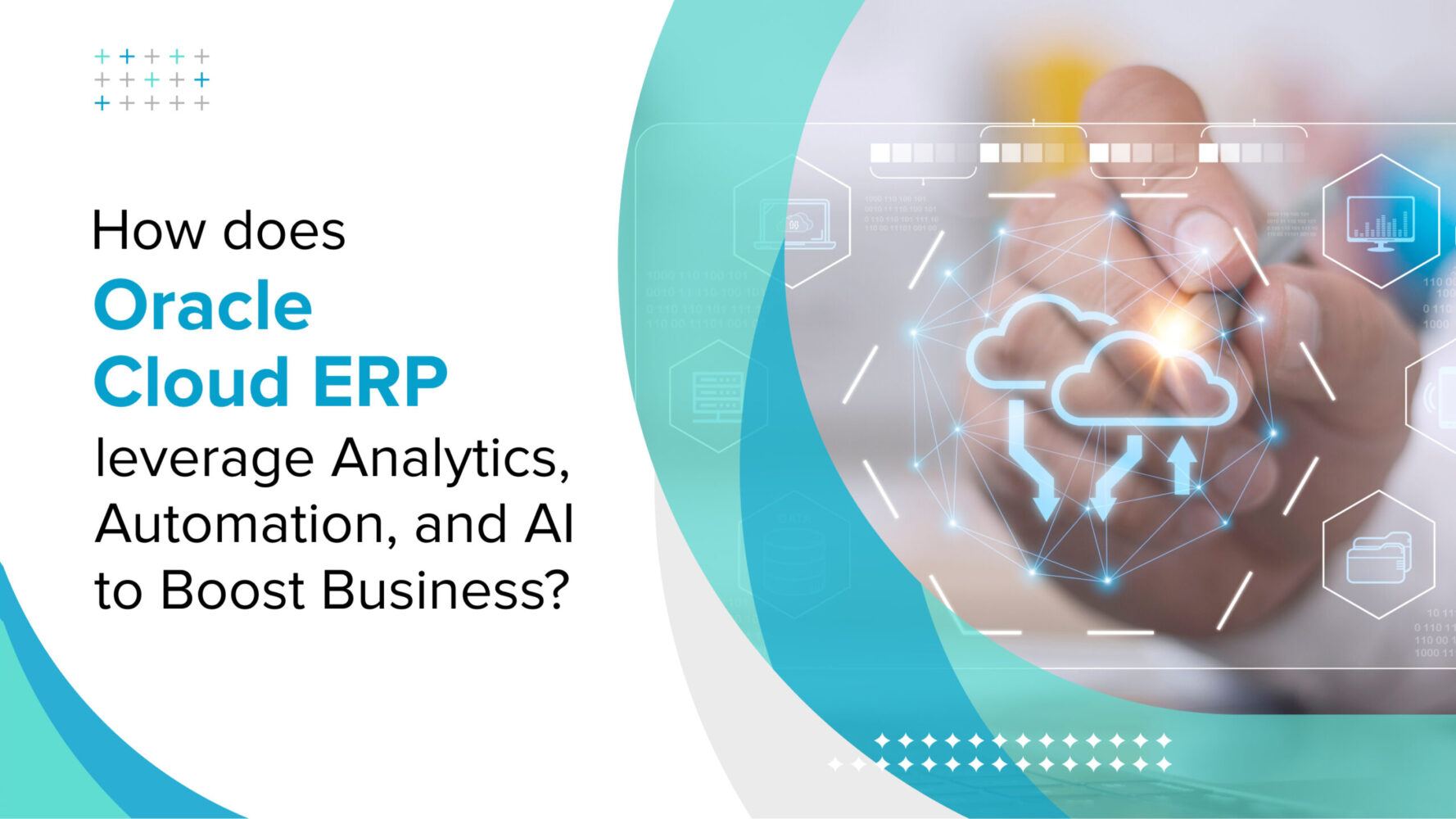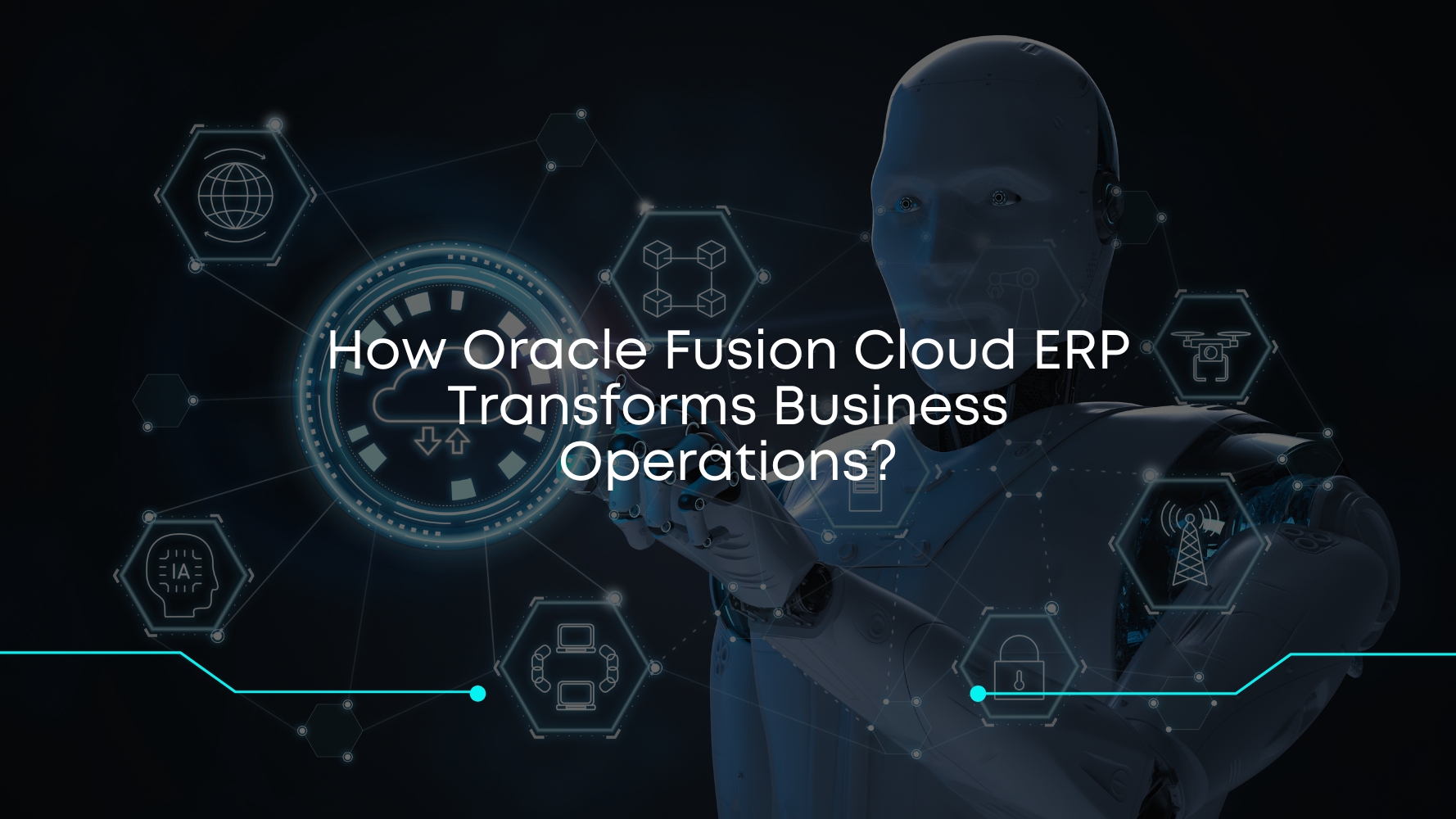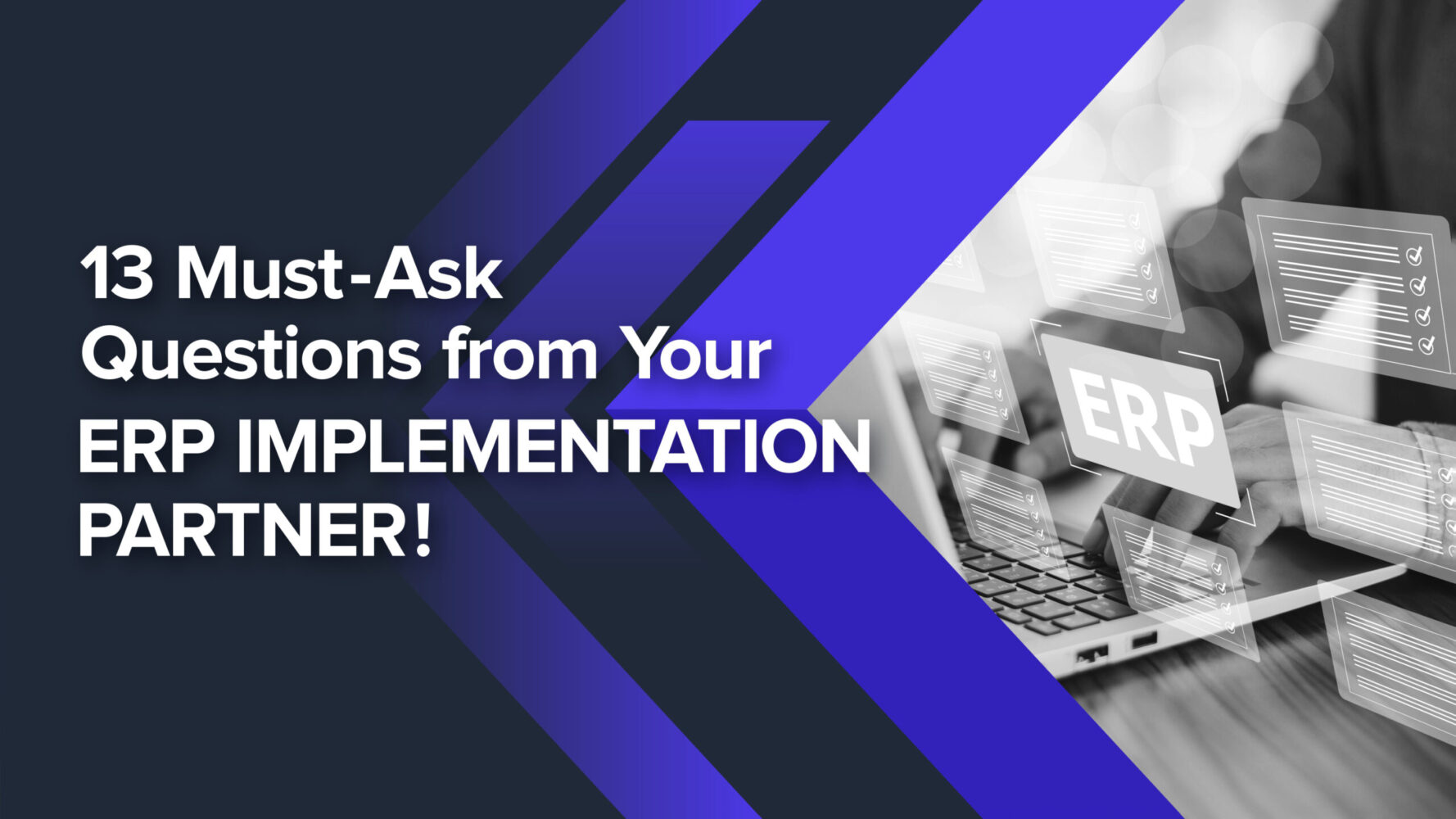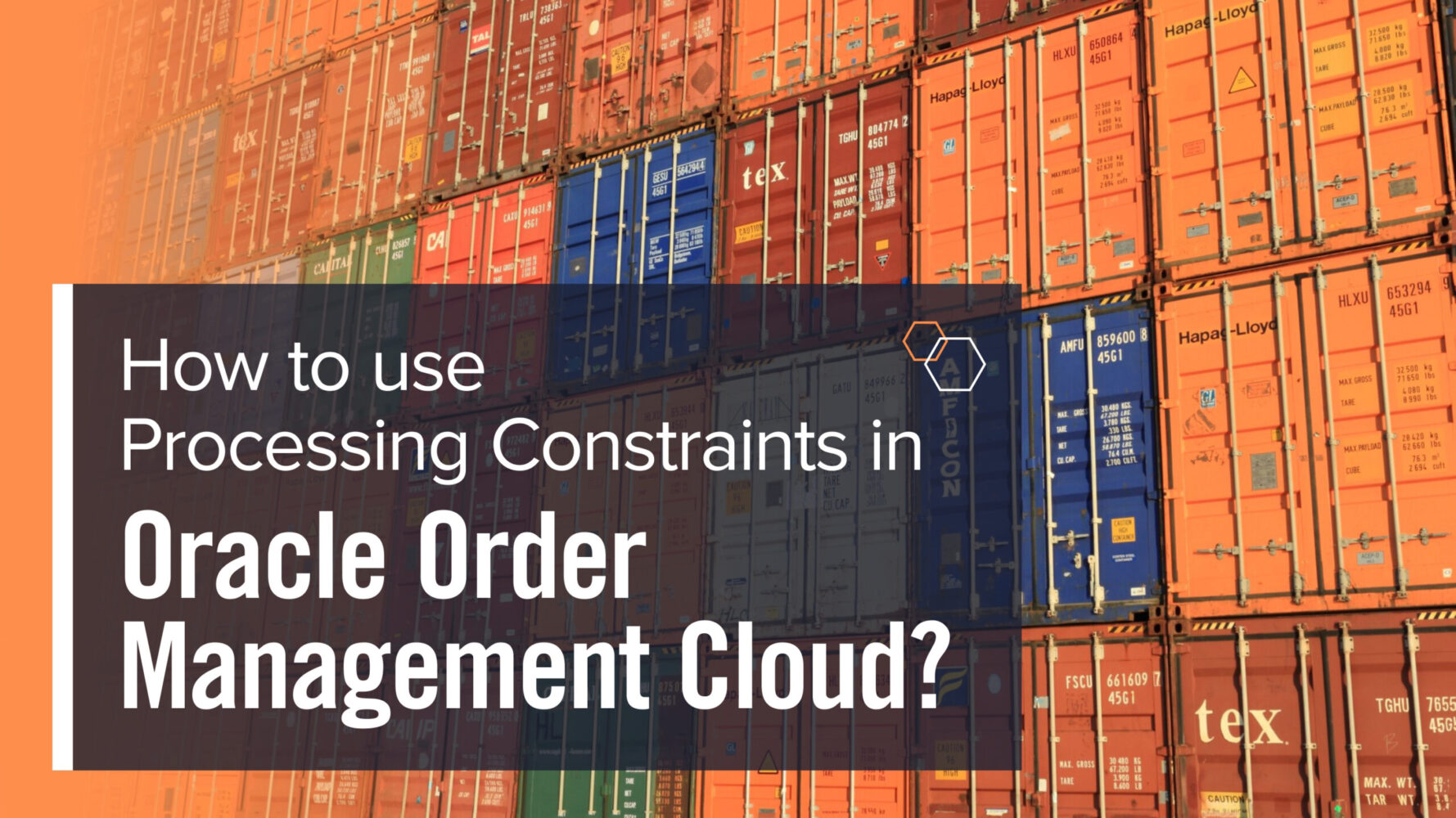Oracle Cloud ERP (Enterprise Resource Planning) is a cloud-based solution that helps businesses manage their financials, procurement, and project management processes more efficiently. However, Oracle ERP offers much more than just basic functionalities. It leverages analytics, automation, and AI to give businesses deeper insights, increased efficiencies, and improved decision-making capabilities.
This blog will discuss how Oracle Cloud ERP leverages analytics, automation, and AI to help businesses achieve their goals and succeed in today’s competitive market.
Oracle Cloud ERP and Analytics
Analytics is collecting, analyzing, and interpreting data to gain insights organizations can use to make informed decisions. Oracle Cloud ERP provides businesses with powerful analytics tools that help them better understand their financials, procurement, and project management processes. The analytics tools in Oracle Cloud ERP are designed to provide businesses with real-time insights into their operations, enabling them to make more informed decisions.
One of the primary ways that Oracle Cloud ERP leverages analytics is through its reporting capabilities. The platform offers a range of pre-built reports and the ability to create custom reports that provide users with detailed information about their business operations. In addition, managers can access these reports in real-time, so users can quickly identify trends and anomalies and act accordingly.
Oracle Cloud ERP also offers powerful data visualization tools that allow users to turn complex data sets into easy-to-understand charts and graphs. These visualizations make it easier for users to identify patterns and trends in their data, which can help them make more informed decisions.
In addition to its reporting and data visualization capabilities, Oracle Cloud ERP also offers predictive analytics tools. These tools use machine learning algorithms to analyze data and identify patterns companies can use to predict future business outcomes. For instance, they can use predictive analytics to forecast product demand, optimize inventory levels, and identify potential risks and opportunities.
One of the essential analytics tools in Oracle Cloud ERP is Oracle Business Intelligence (BI). Oracle BI provides businesses with comprehensive tools for analyzing data, creating dashboards, and visualizing insights. With Oracle BI, companies can easily create interactive reports and dashboards that provide real-time insights into their financials, procurement, and project management processes.
Another powerful analytics tool in Oracle Cloud ERP is Oracle Essbase. Essbase is a multidimensional database management system that allows businesses to perform complex analyses on large data sets. For example, with Essbase, companies can create multifaceted data cubes that teams can use for financial modeling, planning, and analysis.
Oracle Cloud ERP and Automation
Automation is the use of technology to automate repetitive tasks and processes. Oracle Cloud ERP leverages automation to help businesses reduce manual workloads and increase efficiencies. The automation tools in Oracle Cloud ERP are designed to streamline business processes and improve the accuracy and timeliness of data.
One of the vital automation tools in Oracle Cloud ERP is Oracle Integration Cloud (OIC). OIC provides businesses with a cloud-based integration platform that allows them to connect their ERP system with other cloud and on-premises applications. With OIC, companies can automate data flow between different systems, reducing the need for manual data entry and improving data accuracy.
Oracle Cloud ERP offers a range of automation tools that organizations can use to automate various tasks and processes. These tools include robotic process automation (RPA), machine learning, and artificial intelligence (AI) capabilities.
Oracle Cloud ERP also leverages automation through its RPA capabilities. RPA uses software bots to automate repetitive and time-consuming tasks like data entry and invoice processing. By automating these tasks, businesses can reduce the risk of errors and free up valuable time for their employees to focus on more strategic activities.
It leverages machine learning capabilities to automate more complex business processes. For instance, machine learning algorithms can automatically classify and categorize invoices, reducing the need for manual intervention.
Another way that Oracle Cloud ERP leverages automation is through its workflow automation capabilities. Workflow automation involves using software to manage and automate business processes, such as invoice approvals and purchase order processing. By automating these workflows, businesses can ensure that tasks are completed promptly and efficiently, reducing the risk of delays and errors.
Oracle Cloud ERP and AI (Artificial Intelligence)
Oracle Cloud ERP leverages AI in several ways. One of the essential AI tools in Oracle Cloud ERP is Oracle Machine Learning (OML). OML is a set of tools and algorithms that allows businesses to build predictive models and perform data mining tasks. With OML, companies can analyze their data to identify trends and patterns, helping them make more informed decisions.
Businesses can use OML to analyze their sales data to identify which products are selling well and which are not. Companies can then utilize this information to adjust the business’s product offerings, helping to increase sales and revenue.
Another powerful AI tool in Oracle Cloud ERP is Oracle Intelligent Advisor. Intelligent Advisor is a rules engine that allows businesses to automate decision-making processes. With Intelligent Advisor, companies can automate processes such as order entry, reducing manual workloads and improving process efficiencies.
Businesses can use Intelligent Advisor to automate their order entry process. For example, when a customer places an order, Intelligent Advisor can automatically determine the appropriate pricing, discounts, and shipping options based on the customer’s location, order history, and other factors.
Oracle Cloud ERP also leverages AI to help businesses improve their financial management. For example, Oracle Adaptive Intelligent Applications for Finance is an AI-powered solution that allows companies to automate their financial processes, detect anomalies, and provide real-time insights into their financial operations.
Conclusion
Oracle Cloud ERP offers businesses comprehensive tools for managing their financials, procurement, and project management processes. However, what sets Cloud ERP apart is its use of analytics, automation, and AI to provide businesses with deeper insights, increased efficiencies, and improved decision-making capabilities.
With Oracle Cloud ERP, businesses can gain real-time insights into their operations, automate repetitive tasks, and leverage AI to make more informed decisions. These capabilities are critical for companies looking to succeed in today’s competitive market. By leveraging these tools, businesses can reduce costs, increase productivity, and drive growth.
Connect with experienced IT System Integrators, like Tangenz, an Oracle Preferred Partner, to learn more about Oracle Fusion Cloud ERP and its implementation assistance.







